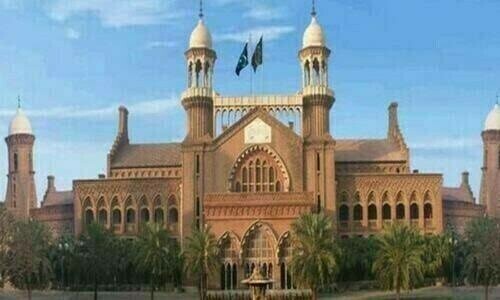ZURICH: Switzerland’s 2-1 World Cup win over Serbia was given a mixed reaction by Swiss media who applauded their rousing second-half comeback but criticised celebrations by scorers Granit Xhaka and Xherdan Shaqiri which appeared to have political overtones.
After falling behind in the fifth minute, Switzerland defied a cauldron-like atmosphere created by fervent Serbian supporters as they hit back with a thunderbolt from Xhaka and a last-minute breakaway goal from Shaqiri.
Both players, who are ethnic Albanians and of Kosovar heritage, celebrated with a gesture which appeared to imitate the eagle displayed on Albania’s flag.
Serbia refuses to recognise the independence of its former province Kosovo, whose 1.8 million people are mostly ethnic Albanians, which broke away 10 years ago.
Second-generation immigrants from the Balkans have played a huge part in transforming the Swiss national side over the past 10 years.
Players such as Valon Behrami — playing at his fourth World Cup — Xhaka and Shaqiri have brought both raw talent and passion to a team which was not noted for either in the past.
But their efforts on Friday got a mixed reaction from the Swiss media, which showered praise on their performance but criticised their celebrations.
“Xherdan Shaqiri and Granit Xhaka have talented feet like no one else in this national team. But their political sensitivity and social awareness let much to be desired,” said the Neue Zuercher Zeitung (NZZ).
The tabloid Blick took a similar line. “Xhaka and Shaqiri played with real heart but forgot to keep cool heads when they celebrated, and that is the big flaw of this wonderfully stirring evening.”
Xhaka and Shaqiri, both articulate and multi-lingual, wear their hearts on their sleeve and have never been shy about their heritage.
In 2012, Swiss television commentator Sascha Ruefer caused controversy with comments about an Xhaka miss during a World Cup qualifier against Albania, when Switzerland were already 2-0 ahead.
“What was that? All he needed was to push the ball home. I’d like to see that again . . . presumably Xhaka was not unhappy at not having scored against Albania,” he said.
Ruefer denied he meant any slur but admitted his comment was a “bit unfortunate.”
Xhaka backed Kosovo’s ultimately successful campaign for FIFA membership and at one point contemplated playing for their before pledging his allegiance to Switzerland.
The players insisted there was nothing to see in their celebrations.
“For me it was a really special day,” said Xhaka. “This is a victory for my family, for Switzerland, Albania, Kosovo. The gesture was for everyone who has supported me, it was not aimed at our opponents. It was a really emotional game.”
Shaqiri said: “It’s nothing to do with politics, it’s about football.”
Meanwhile, the Serbian papers also slammed what they labelled ‘shameful provocation’ by Shaqiri and Xhaka. They noted that Shaqiri wore boots carrying flags of both Switzerland and Kosovo.
The Telegraph paper criticised the “provocative Albanian gesticulation” while the Vecernje Novosti, under the headline ‘Provocation of the Swiss’, featured a large photo of Shaqiri’s boots.
The Serbian Football Federation had complained over Shaqiri’s boots ahead of the match but without success, state-run television RTS reported.
“We sought that he changes the boots. It was a provocation, we were playing against Switzerland, not Kosovo,” official Jovan Surbatovic said.
Meanwhile, papers in Kosovo praised the ‘extraordinary performance’ of the two players.
“The gesture of Xhaka and Shaqiri causes hysteria in Serbia,” the Zeri paper commented.
Kosovo President Hashim Thaci tweeted his congratulations to the two scorers and the entire Swiss team on a “well-deserved win. Proud of you! Kosovo loves you!”.
Petrit Selimi, a former high-ranking Kosovo government official, defended the players’ actions.
“Why provocative? It’s a symbol of the Albanian flag. They [players] used to be Kosovo Albanian refugees,” he said on Twitter.
Kosovo declared independence in 2008, less than a decade after the 1998-99 war between ethnic Albanian guerillas and Serb forces, but Belgrade — backed by its traditional ally Russia — still refuses to recognise the move.
Published in Dawn, June 24th, 2018












































